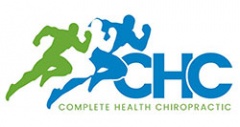
As a new year begins, many of us embark on a journey of personal renewal. It’s a time to reflect, to focus our energy on what truly matters, and perhaps, to make life-altering changes. With February marking the start of National Self-Check Month, there’s no better time to prioritize our health, starting with ourselves.
The importance of early detection in saving lives cannot be overstated. The more attuned we are to our bodies, the quicker we can detect any changes and seek necessary assistance. But what exactly do self-checks entail? And what signs should we be on the lookout for? Fortunately, performing self-checks is simpler than you might imagine.
Understanding Self-Checks Traditional health check-ups often involve a series of screenings and tests aimed at identifying potential health issues before they escalate. These may include routine visits to the doctor, blood tests, and monitoring vital signs like heart rate and blood pressure. At-home self-checks complement these visits by allowing us to monitor various aspects of our health in a non-invasive manner. It’s essential to view self-checks as a valuable addition to regular medical care. So, what parts of the body and systems should we include in our self-check routines? Essentially, the answer is: everywhere. Let’s start from the top and work our way down.
- Neurological Health Self-Check Our neurological well-being is crucial to our overall health, yet its decline is often overlooked until noticeable symptoms manifest. To perform a self-check on your neurological health, consider simple tests that involve various body movements, with eyes both open and closed, to assess the state of the nervous system.
- Mental Health Self-Check It’s important to distinguish between neurological health and mental health. Mental health self-checks involve assessing our emotional state through activities such as journaling, self-reflective questioning, and regular introspection regarding feelings of anxiety, anger, dissatisfaction, or depression. Monitoring mental health is essential for maintaining a high quality of life.
- Vision and Eye Health Self-Check Whether or not you wear glasses or contacts, it’s wise to monitor changes in your vision. At home, you can conduct simple tests using an eye chart to assess visual acuity. Any changes or concerns should be discussed with an eye care professional.
- Ear Health Self-Check Hearing loss affects a significant portion of the population, with numbers increasing as we age. Changes in hearing, ringing in the ears, or persistent discomfort should prompt professional evaluation. Online hearing tests can provide additional insight into your auditory health.
- Respiratory Health Self-Check Healthy lungs are essential for overall well-being. While professional care is irreplaceable, you can assess respiratory health at home using a peak flow meter or by monitoring breathing patterns. Any persistent difficulty in breathing warrants medical attention.
- Cardiovascular Health Self-Check Cardiovascular health, encompassing heart and blood vessel function, is paramount. Simple tests like the stairs test or monitoring resting heart rate can offer insights into heart health. Any unusual symptoms should be promptly addressed by a healthcare professional.
- Digestive Health Self-Check Observation is key to assessing digestive health. Pay attention to changes in bathroom habits and note any pain, frequency, or consistency variations.
- Reproductive Health Self-Check For both men and women, regular self-checks are essential. Observation of any changes or discomfort, coupled with routine breast and testicular exams, can aid in early detection of issues. Regular visits to a reproductive health specialist are also crucial.
- Skin Health Self-Check Skin cancer rates are on the rise, underscoring the importance of regular skin examinations. Monitor moles, freckles, and any sores that fail to heal. Seek assistance for any concerning changes.
- Musculoskeletal Health Self-Check Maintaining mobility and pain-free movement is vital for quality of life. Monitor for soft tissue injuries, joint discomfort, and changes in flexibility. Any notable changes should be discussed with a healthcare provider or chiropractor.
In conclusion, prevention and early detection are fundamental to maintaining good health. While we may not visit a doctor daily, we can certainly advocate for our own well-being through self-checks. By familiarizing ourselves with our bodies and monitoring changes, we empower ourselves to prioritize health and potentially avert serious issues. Make self-checks a routine part of your health regimen starting today.
If you would like to be checked feel free to contact our office at 402-488-0288.
[Disclaimer: The information provided here is for educational purposes only and should not substitute professional medical advice. Always consult with a qualified healthcare provider regarding any medical concerns or treatments.]
